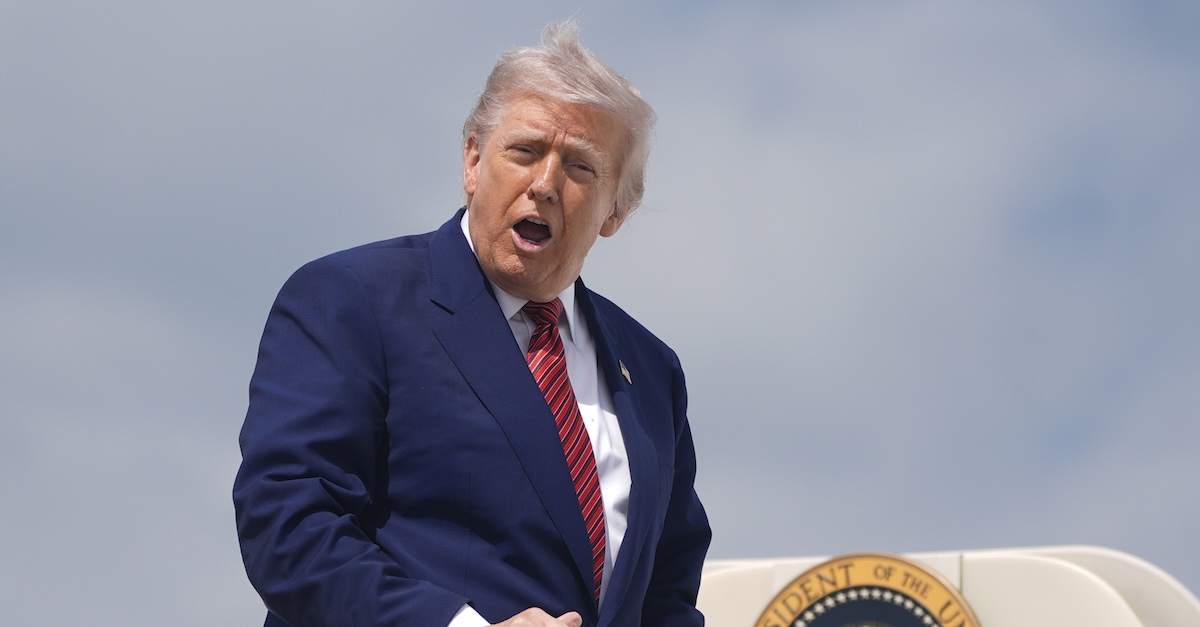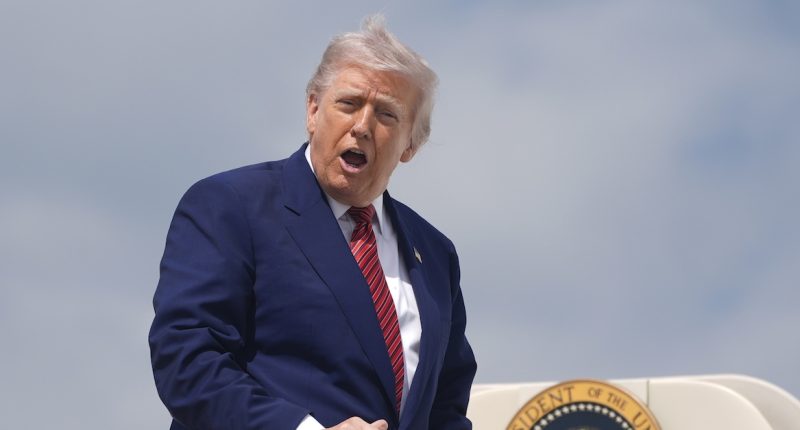
President Donald Trump boards Air Force One to depart Joint Base Andrews, Md. on May 23, 2025 (AP Photo/Manuel Balce Ceneta).
A California-based federal jurist that President Donald Trump labeled and wrote off several years ago as an “Obama judge” — prompting a rare rebuke from Chief Justice John Roberts — on Monday partially blocked government agencies from enforcing aspects of the 45th and 47th president’s anti-DEI executive orders on unlawful censorship grounds.
In a 52-page ruling, U.S. District Judge Jon Tigar, indeed a Barack Obama appointee, agreed that a group of pro-LGBTQ nonprofits “demonstrated that they likely have standing to challenge” four of nine provisions of Trump executive orders signed at the start of his second term in office. Those provisions include a directive that agencies terminate funding for all “equity-related grants or contracts” and two that stop funding for any programs that “promote gender ideology.”
Love true crime? Sign up for our newsletter, The Law&Crime Docket, to get the latest real-life crime stories delivered right to your inbox.
The provisions appear in a combined three executive orders Trump signed on the first day of his second term as president — one order targeting transgender people by “recogniz[ing] two sexes, male and female,” and two orders purportedly aimed at bringing down diversity, equity and inclusion (DEI) programs and initiatives.
In Tigar’s view, the plaintiffs, led by the San Francisco AIDS Foundation, won a partial injunction because they are likely to succeed with their arguments that the Trump administration is violating the Constitution and engaging in a censorship campaign.
“These three funding provisions reflect an effort to censor constitutionally protected speech and services promoting DEI and recognizing the existence of transgender individuals,” the judge wrote in his partial grant of the organizations’ injunction request. “These provisions seek to strip funding from programs that serve historically disenfranchised populations in direct contravention of several statutes under which Plaintiffs receive funding.”
“Plaintiffs have therefore demonstrated a likelihood of success on the merits that these provisions violate their rights under the First Amendment, Fifth Amendment, and the Separation of Powers,” Tigar added. “Plaintiffs, however, have not demonstrated that they likely to succeed in their challenge to the Certification Provision because they have not shown at this juncture that the provision goes beyond targeting DEI programs that violate federal antidiscrimination law.”
The judge noted that the Trump administration is “still bound by the Constitution” and “cannot weaponize Congressionally appropriated funds to single out protected communities” through “vague” orders.
It wasn’t a total landslide win for the plaintiffs, however. Although Tigar determined that they would likely succeed with some of their claims, he also found that they had failed to show that the provisions violated the separation of powers required by the Constitution.
“[T]he grants received by Plaintiffs were appropriated by Congress for more general purposes and to be allocated by the implementing agencies, including with terms (as discussed above) that give the Executive discretion to terminate at least in some instances,” the judge wrote. “Accordingly, Plaintiffs have not sufficiently demonstrated that they are likely to succeed in their facial Separation of Powers challenge.”
Read the ruling here.








